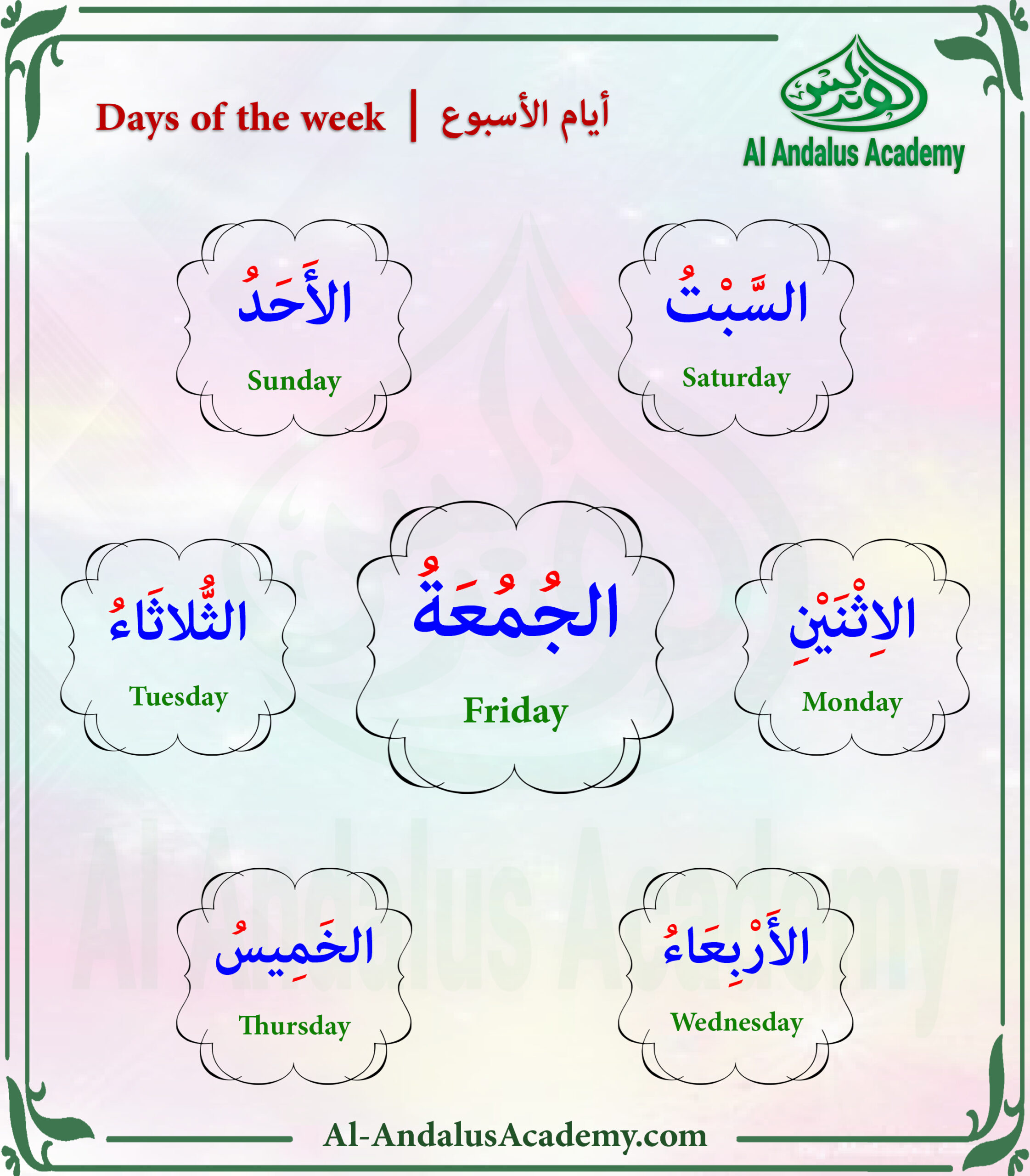
Image: www.pinterest.com
A Tapestry of Time: Tracing the Origins of Arabic Days
Delving into the realm of the Arabic language, we embark on a linguistic journey where words dance with tradition and meaning. One such tapestry woven into the fabric of Arabic is the cadence of weekdays, each bearing a unique resonance and cultural significance. In this article, we unravel the etymology and essence of these temporal threads, immersing ourselves in the rich tapestry of Arabic language.
Navigating the Cycle of Arabic Weekdays
- Sunday: Ahad (الأحد), meaning “first,” heralds the commencement of a new week.
- Monday: Ithnayn (الإثنين), denoting “second,” marks the second day of the week, balancing the weight of the beginning.
- Tuesday: Thulatha (الثلاثاء), translating to “third,” signals the third step on the weekly ladder.
- Wednesday: Arba’a (الأربعاء), meaning “fourth,” stands as a midpoint, a sanctuary between the toils of the beginning and end of the week.
- Thursday: Khamis (الخَميْس), signifying “fifth,” whispers of the impending weekend’s embrace.
- Friday: Jum’ah (الْجُمُعَة), meaning “gathering,” holds a sacred stature as the day of communal prayers, fostering a sense of unity and spirituality.
- Saturday: Sabt (السبت), a word rooted in “cessation,” symbolizes the restful pause before the cycle renews.
Exploring the Temporal Kaleidoscope of Arabic
Arabic weekdays not only measure time but also mirror a cultural compass, reflecting the rhythms of life and societal traditions. Friday’s exalted status as a “day of gathering” underscores the profound significance placed on social and religious connections. The advent of Saturday, “the cessation,” echoes the deeply ingrained Arabic reverence for rest and rejuvenation.

Image: al-andalusacademy.com
Week Days In Arabic Language
Tips and Linguistic Luminaries
To navigate the intricacies of Arabic weekdays like a seasoned traveler, heed these expert tips:
- Immerse in Arabic sources: Dive into Arabic literature, media, and conversations to absorb the natural flow of weekday expressions.
- Seek guidance from native speakers: Engage with Arabic-speaking individuals to gain first-hand pronunciation and usage insights.
Unraveling the Enigma of Arabic Weekdays: An FAQ
Q: Why is Friday considered so significant in the Arab world?
A: Friday holds great religious and social significance. It’s the day of congregational prayers, fostering unity and spiritual renewal.
Q: How does Saturday’s etymology relate to the concept of rest?
A: Saturday’s Arabic name, “Sabt,” stems from “cessation,” underscoring the tradition of pause and respite.
Q: Are there any gender differences in the names of weekdays?
A: Yes, weekdays in Arabic have both masculine and feminine forms. “Al-ahad” (Sunday) takes on “ahada” if referring to feminine entities.
In conclusion, Arabic weekdays offer a fascinating tapestry of language, culture, and tradition. By immersing ourselves in the vibrant cadence of these temporal threads, we embrace the opportunity to comprehend the deeper complexities woven within the Arabic language. Whether embarking on a journey of linguistic discovery or seeking deeper cultural connections, delving into the symphony of Arabic weekdays offers an enriching and enlightening experience.
ان أعجبك الموضوع وتريد الاستزاده من الموضوع فأين يمكنني ذلك ؟